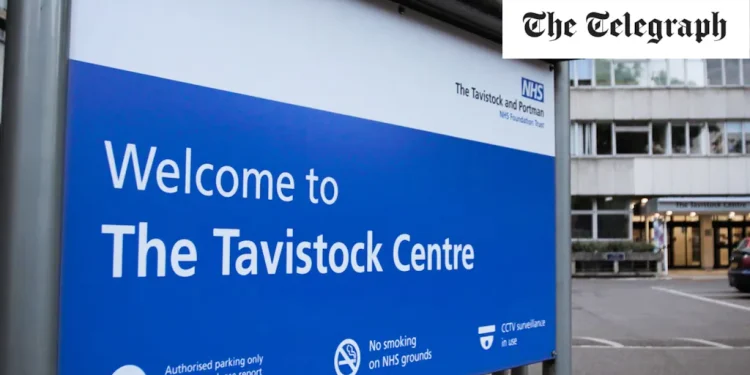Increasing concern over schools which permit pupils to change gender without their parents’ knowledge
Transgender children face grave psychological consequences if they are allowed to “socially transition”, a landmark review is expected to say this week.
The warning comes amid a huge rise in the number of children identifying as transgender, and deep concern that schools have been allowing pupils to change gender without their parents’ knowledge, despite Government guidance to the contrary.
The Cass review into gender identity services for children, which will be published on Wednesday, has promised to consider the “important role of schools” and the challenges they face in responding to “gender-questioning” pupils.
The review, led by Dame Hilary Cass, will include an analysis of scientific literature on the effects and outcomes of social transitioning.
It is expected to say that children may experience “psychological” repercussions as a result of being allowed to change their name and pronoun to the gender of their choice. The interim report released in 2022 noted that changing a child’s name and pronouns was “not a neutral act”.
Prepubescent children should not be put on the same “pathway” as older adolescents who wish to identify as the opposite gender, the final review is expected to say.
The review’s findings are likely to be reflected in the Department for Education’s (DfE) official guidance for teachers on how to deal with transgender children, the final version of which is due to be published later this year.
Following the publication of the interim review in 2022, it was announced that the Tavistock transgender clinicwould be shut down after it was deemed to be unsafe for children.
NHS England said it would instead move young people who believed that they were trans into regional centres that take a more “holistic” approach to treatment and look at other mental health or medical issues they may have.
Concern over ‘schools to clinics pipeline’
Since the publication of the interim review, concerns have been raised with Dame Hilary about the “schools to clinics pipeline”, in which children are allowed to live as the opposite gender, thereby creating demand for more serious medical interventions later.
Earlier this week, the biggest survey of its kind revealed that primary school teachers were letting pupils change their name and pronoun without informing their families.
An analysis of more than 600 school equality and trans policies reveals that up to three-quarters misrepresent laws protecting sex and gender, with some implementing rules that allow boys to use girls’ lavatories and changing rooms if they say they are a girl.
It also emerged this week that a group of Church of England schools told teachers that they would probably be breaking the law if they said a person cannot change their biological sex.
Maya Forstater, the chief executive of the charity Sex Matters, who has spoken to Dame Hilary and her team, said: “Doctors are having to deal with gender-confused children who have already been socially transitioned at school for years, and are, as a result, very disturbed by the idea of going through puberty, which will develop their secondary sex characteristics. If social transitioning in schools is stopped, it will take the pressure off clinics.
“The Department for Education needs to say there is no way to keep children safe in schools while you are pretending that a boy is a girl, or that a girl is a boy. You are putting children through a psychological experiment with no clinical oversight. The whole thing is a fantasy being sold to children by adults who should know better.”
Prof Michael Biggs, a sociologist at Oxford University, said: “We do know from a longitudinal Dutch study that there is compelling evidence that socially transitioning does lock in transgender identity.
“It measured gender dysphoria before puberty and then came back several years later. You cannot treat it as an innocuous measure.










Discussion about this post